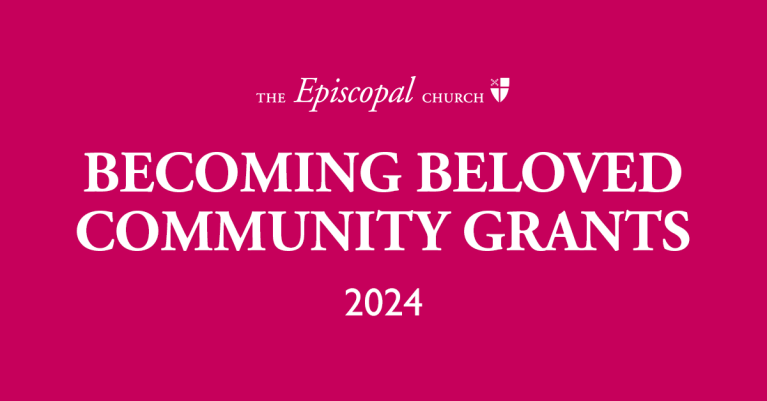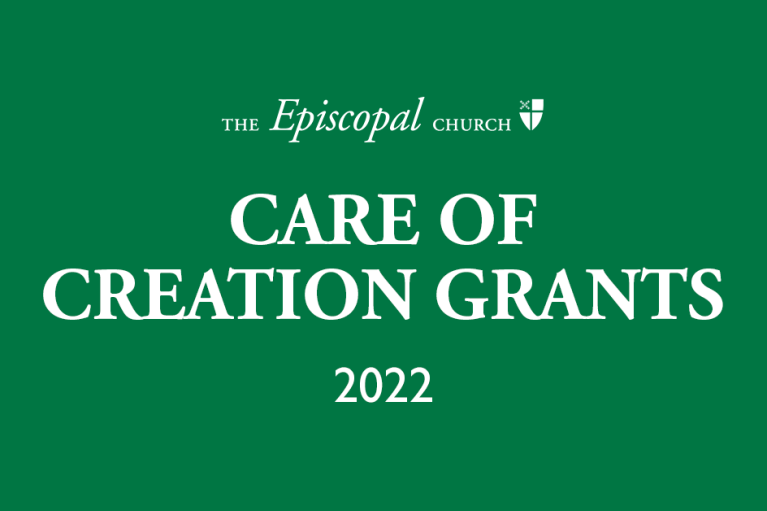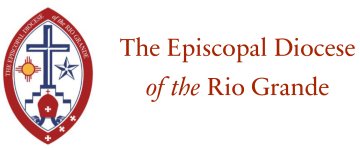Share a story
St. Paul’s has its origins in a Sunday school started in the 1880s by a pioneer settler from England, Mary Walker Humphris, in her home. In 1898 the first St. Paul’s Church, an adobe structure, was erected on Highland Avenue on the present site of the Paisano Hotel. In 1929 that building was demolished to make way for the hotel and the present church was built a few blocks north on Highland. It is an attractive hollow clay tile structure veneered with river rock, comprising a sanctuary that seats 100, a large parish hall, a kitchen and a parlor, located on a corner lot directly north of the county courthouse. A new 45-year warranted metal roof was installed in the summer of 2011. St. Paul’s is a Marfa treasure, well-known for its hospitality and welcoming attitude, hosting community-wide events on Thanksgiving, Easter Sunday and other occasions.
The mission of St. Paul's is to be a welcoming, prayerful, caring community offering the love of God to all — through the rich liturgy of the Anglican tradition; through ministry to the greater Marfa community; through honoring and protecting human dignity without exception; and through our sacred stewardship of all creation.
More information about Marfa is found on the following site: http://stpaulsmarfa.org/about-us/
Worship times
Volunteer opportunities
We are very active with Borderland Ministries and are always looking for volunteers and donations (in-kind & Monetary). We work with shelters located in Juarez and Ojinaga, Mexico. These shelters house adults and unaccompanied children who are either deported or waiting for their "number" to be called. We also work with projects in the Big Bend Sector and Mexico.We are the hub of ministry in Far West Texas. This includes the following churches and locations: St. James, Alpine; Santa Inez, Terlingua; Chapel of St. Joseph and St. Mary, Lajitas; and St. Stephens, Fort Stockton. We have a a thrift store called Otra Vez which helps fund various ministries in Far West Texas and provides various items for people in need. We are developing a pilgrimage along the border to educate people about issues at our border and ways to work with families and small villages.
Ministries
Rio Grande Borderland Ministries
RIO GRANDE BORDERLAND MINISTRIES
MISSION
Rio Grande Borderland Ministries (RGBM) is an agency of the Diocese of the Rio Grande and is committed to serving those in need in the New Mexico and far western Texas borderlands. RGBM is dedicated to understanding and identifying needs throughout the borderlands of the Diocese and implementing solutions. Food, clothing, blankets, habitat, education, medical and legal assistance are just some of the needs addressed. The compassionate response of RGBM to those in need is simple—everyone eats, everyone is clothed, everyone has a safe and healthy habitat, and everyone is loved.
GOAL/BENEFIT
RGBM’s program objectives include addressing the needs of asylum seekers and people at our border, offering pilgrimages to increase awareness of borderland conditions and providing solar panels and educational facility improvement to small villages located along the Mexico border. Sponsorship for community development projects has come in the form of grants and donations. RGBM is benefiting from the pro bono services of a grant-writing/fundraising professional who is in support of its mission. A significant amount of RGBM’s attention is focused on ongoing efforts to obtain external funding.
The benefit of RGBM’s programmatic goals and ongoing projects exceeds its operational costs. Responding to the immediate needs of asylum seekers affected by the remain in Mexico policy is in keeping with RGBM’s humanitarian mission. Hosting pilgrimages that increase awareness of borderland conditions serves to educate and activate participants toward advocacy. Installation of solar panels offers a sustainable solution to impoverished villages and improving education infrastructure boosts economic growth through improved student outcomes.
ASYLUM SEEKERS AND PEOPLE AT OUR BORDER/IDENTIFIED NEEDS
An assessment of shelters operating in the Northern Mexico cities of Juarez and Ojinaga has identified mechanical, electrical and plumbing deficiencies along with equipment and supply needs as detailed below:
Holy Spirit Anglican Church, Juarez, Mexico
A site visit to this 96-bed shelter revealed several areas for facility improvement. In the area of HVAC, there is no heating capability and the current air conditioners need repair. Ceiling fans are needed throughout the facility. The shelter should be connected to the City’s natural gas system as a less expensive option than its current reliance on propane fuel. The 1st floor needs plumbing repairs. Plumbing and electrical problems exist on the 3rd floor. The 3rd floor requires the addition of a laundry area along with laundry equipment. The exterior of the building needs to be painted and the drainage system for the courtyard needs to be improved. Access to the courtyard should be secured by a metal gate. The shelter needs to be supplied with kitchenware, towels, pillows, bed linens and blankets. Play equipment needed for youth includes soccer balls and goals, basketballs and nets.
St. Matias Anglican Church, Juarez, Mexico
St. Matias hosts approximately 85 total occupants ranging in age from 5 to 65 and including families and single males. All current occupants are from Cuba. An inspection of the Church, rectory and dormitory revealed significant water damage to the exterior and interior of the structures indicating the need for new roofing and ceiling repairs to the interior. Roofing repairs are in progress. The water collection system should be repaired and maintained including the installation of a new water pump system. Like its sister shelter, Holy Spirit Anglican Church, St. Matias should procure natural gas from the City and discontinue its reliance on propane. The Church grounds provides sufficient space for a community garden and for the installation of two green houses. There is a need for a new fenced in area. A designated laundry area needs to be created and equipped with machines. Soccer balls and goals, basketballs and nets are needed for the youth. Transportation capability is critical to the shelter’s operation and is best served by the purchase of a 10 – 12 seat passenger van.
Ojinaga, Mexico
The Mexican Government provided for these shelters until they decided they would not. The City was placed in a position of having to take over. There are two shelters one for Asylum seekers and those being deported and the other for the Indigenous people who work in the fields harvesting.
The Asylum Shelter
In this shelter, people are waiting to cross the border legally. There are people who have been deported and cannot go back to their country of origin. This includes unaccompanied children released from U.S. border holding facilities. This shelter needs better electricity and air conditioning. A play field needs to be created for the children. The shelter strives to reconnect the children with their parents and this is proving time consuming and difficult. Volunteers who might be good at tracking down people would be a big help. Clothes, athletic equipment, medicine and food are needed. Wheelchairs are needed for those who sustained injury on their long journey. Good news—there is a Rehab facility (Physical Therapy) which works with the refugees for free. Sad news—there is a funeral home on the other side which provides free services for those who die due to the long and exhausting trek. They have a passenger van which is in bad shape. They could use a mechanic and money to fix it up and/or a new mode of transportation. The plumbing needs repair along with the addition of more showers, toilets, washing machines and dryers. Solar panels like that have been placed in small villages across from Boquillas could also be installed on the roof for better flow of electricity which would help with heating and cooling. The shelter receives between 20 and 30 people weekly. The shelter itself needs to be expanded to be able to provide for everyone who walks through their doors.
The Indigenous Shelter
This shelter is in the middle of nowhere. It is a small apartment type facility with one shower for everyone and one toilet/bathroom. More showers, bathrooms and toilets are needed. The children are left on their own while the parents are working in the fields. The “school” on site needs air conditioning. Solar panels could be installed. A truck load of drinking water is delivered every 5 days and the storage tank is insufficient for holding the water. Meals are prepared outside over an open fire as there are no stoves inside the apartments. Poor wiring in one of the apartments recently caused a fire. No laundry facilities are available although there is a series of outdoor washing places for laundry by hand. A common cooking area supplied with refrigerators and stoves is desired. The shelter needs bedding, cleaning supplies, pots and pans and other cookware. The youth need athletic equipment as well as school supplies and computers. stoves and limited refrigerators.
PILGRIMAGES/EDUCATION
A planning session was recently held in Cloudcroft, New Mexico, and attended by RGBM members Rev. Susan Hutchins, Rev. Michael Wallens, Rev. Canon Kathy McNellis and Br. David-Luke Henton, BSG to formulate the specifics of a border pilgrimage to be offered by the Diocese of the Rio Grande. The pilgrimages are designed to be a humanitarian Christian learning and spiritual experience. The hope is that visitors will go back and tell the story of what they saw and experienced. Potentially this will lead to sustainable financial and in-kind support. The intent is to build both greater awareness and capacity for long-term Border ministries on both sides of the border. The pilgrimages will include three geographical components: (1) El Paso, Texas; Juarez, Mexico; Las Cruces, New Mexico; (2) Ojinaga, Mexico; the Big Bend area to include Boquillas, Mexico, and surrounding area; Terlingua, Texas (3) Puerto Palomas, Mexico; Columbus, New Mexico; Deming, New Mexico. Detailed below is a tentative proposal of potential activities.
El Paso Area Component Potential Activities
- Begin in El Paso Monday evening with a welcome and introductions from the Bishop; introductions and welcome from the Mayors of El Paso and Cd. Juarez (or their representatives); introductions all around; happy hour; dinner; UTEP speaker with introduction on the Border; Mariachis; Compline; Overnight at the Marriott Airport or other lodging close to the airport and with conference and food/beverage facilities
- Overview of the geography of El Paso/Juarez: Bus tour along the border and literal viewpoints (e.g., from Scenic Drive) of the entire Metro Area
- Meeting with Ruben Garcia and staff from Assumption House to learn more about their services on the border
- Visits with other faith-based humanitarian providers (e.g., Homeless Opportunity Center in El Paso; Peace Lutheran in Las Cruces; Gospel Rescue Mission in Las Cruces)
- Meeting with El Paso Episcopal clergy and lay leaders and learning about the Diocese of Rio Grande responses on the ground to the humanitarian challenges on the border
- Meeting with Padre Hector and Mexican Anglicans and learning about the Anglican Diocese of Northern Mexico churches in Ciudad. Juarez
- Do we want to go to Juarez? (Many of us have been, including recently to Espiritu Santo. We are uncertain at this point about whether to offer this as part of the pilgrimage. It is impossible to know the future, and much will depend both on the border conditions at the time and the situation in Cd. Juarez)
- Visit to a colonias on the U.S. side (e.g., outside of Horizon City, TX)
Big Bend Component Potential Activities
- Driving through Big Bend National Park to the border crossing at Boquillas. Cross the Rio Grande and travel by jeep to the villages where we have helped with solar panels outside of Boquillas
- Visiting Santa Ynez church in Terlingua, Texas, and Otra Vez Thrift Store, Study Butte, TX
- Visiting Lajitas, praying at the chapel of Sts. Mary & Joseph, Lajitas, Texas; learning about the Protesta Fiesta and the Mass in the Rio Grande
- Crossing over to Ojinaga, meeting with the Mayor to learn more about the community’s response to the migration crisis on the Chihuahua side (including accommodating both migrants and asylum-seekers from Central America and the interior of Mexico and those newly deported from the U.S. through the port of Presidio/Ojinaga)
- Visiting shelters in Ojinaga if feasible, including short-term service opportunities and learning from refugees, asylees, deportees and asylum-seekers
- Meeting with and learning from Marfa sector Border Patrol officers
- Meeting with faith-based humanitarian agents such as the Pastor of the church in Boquillas, Roman Catholic church members in Ojinaga, Episcopalians at St. Paul’s/Marfa
- At least one meal in homes Boquillas and/or Ojinaga
- Experience migrant trails in the desert
- Mass in the Rio Grande in May as an (optional) additional extra or as a separate offering
Columbus/Palomas Component Potential Activities
- Driving New Mexico Highway 9 along the desolate stretch of the border between Santa Teresa and Columbus, NM
- Crossing on foot, visiting the workshop of the Women’s Cooperative along with an overview tour of Palomas
- Viewing and purchasing goods from the Women’s Cooperative
- (If on a Wednesday) Celebrating House Mass with the ecumenical Episcopal community that meets in Rev. Susan’s home
- Possibly touring (or at least learning about) the Detention facility in Deming
COMMUNITY DEVELOPMENT
Solar Panels (Small Villages)
We have partnered with the people of Jaboncillos, Coahuila, Mexico to improve conditions in the villages of Boquillas, San Vincente, La Union, Jaboncillos and Los Norias. Each of these “ejidos” has fewer than 250 residents. We are currently building a new High School classroom. We just completed a solar project at the Military Base in Boquillas which provides medical care when needed. To date, seven solar panel systems have been built – three for churches, two for schools, one at a military base and one solar powered water pump for drinking water. When a system is installed in a school, we also provide computers, digital projectors and school supplies.
News about St. Paul's Church
Share a story
2024 Becoming Beloved Community Grant Recipient - St. Paul’s Episcopal Church, Marfa, Texas, Episcopal Diocese of the Rio Grande
Forty Becoming Beloved Community grants supporting the work of racial justice, healing, reconciliation, and creation care were approved by The Episcopal Church’s Executive Council during its A
101 E Washington
Marfa, TX 79843-0175
United States





